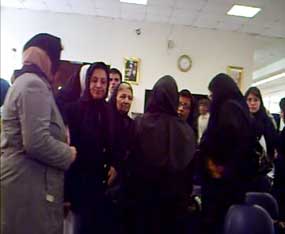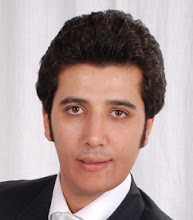Majlis Drafts Law to “Protect Image of Regime”

Only 10 months are left for Iran’s next presidential elections and the country’s parliamentarians have already launched their measures to vet out the candidates and muscle their own favorites into the race. Some Majlis deputies this week declared that the large number of candidates who have signed up for next year’s presidential elections, which in the final count only leave just a few qualified individuals, results in large expenses for the state and therefore they plan to modify the presidential elections law.
And while the spokesperson for the powerful Guardians Council which is constitutionally tasked to supervise national elections and in the process vets out the usually large number of candidates, ha said that the time window for reforming the presidential elections law has already passed, Mohammadreza Mirtajeddin, an MP from the city of Tabriz in northern Iran, who is also a member of the leadership group, flouted the idea that the presidential elections law be revised.
According to semi-official Fars news agency, Mirtajedin pointed out to some of the shortcomings of the law and said, “The current law unfortunately allows anybody who can read and write to run for the office of the president, which results in that everybody wants to run. The number of those who register for the presidential race shoots up initially but during the vetting process most of the candidates are disqualified, costing plenty of money to the state.” “The Majlis can pass legislature to put forth stricter conditions and requirements for the applicants so that this deficiency of the presidential law would be corrected. Other criteria that could be added are executive knowledge and special education,” he added.
This is not the first or only proposal to amend the existing law. Other MPs had voiced similar calls. Hamid Reza Babai, for example, who is another member of the Majlis leadership group, had said that the law had to be changed, reminding his audience that, “Thousands of people sign up as candidates during the elections, while only five or six are finally announced to be qualified for the job. This has a negative impact on world public opinion, which says that there is no freedom in Iran because a thousand candidates were disqualified. This is not a good impression of Iran at the international level. We must therefore move in the direction that only qualified individuals sign up for the race.”
A month earlier, Alireza Afshar, the political vice-minister at the ministry of the interior which at the time did not yet have a minister and which is tasked with the job of implementing the elections also said that the presidential elections law had to be revised. Speaking to a IRNA news agency reporter, he said, “The committee to review the presidential elections law has been formed and it has already held a number of sessions. But since we believe that this is going to be a lengthy process, and not be complete before the next presidential elections, we should put an urgency into reviewing the presidential elections law.”
Merely a month after these remarks, the new minister of the interior Ali Kordan last month stressed that there was no need to change the presidential elections law! He said that the next year’s race should be held according to the existing law.
There are others too who are not too eager on changing the existing rules. The Guardians Council is one of them. Abbasali Kadkhodai, the spokesperson of the council has said that “the council was against a hasty review of the law.” He defended the position by saying that only ten months were left for the elections, and that was not sufficient time to review the law.
So it is not yet clear whether those MPs who advocate changing the law for the next elections will intensify their drive and change the rules, or whether the next elections will be held in the same framework as the previous ones.


No comments:
Post a Comment